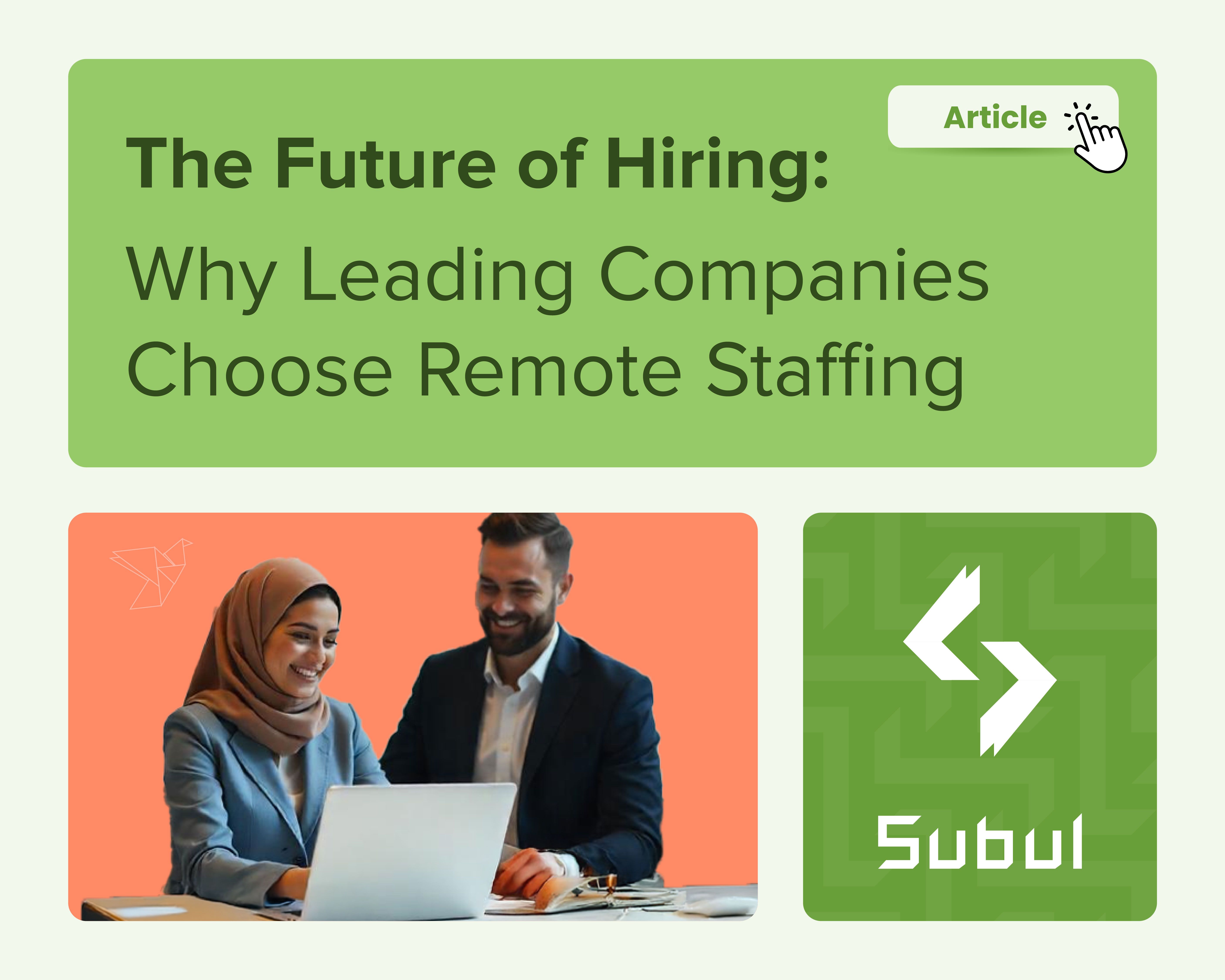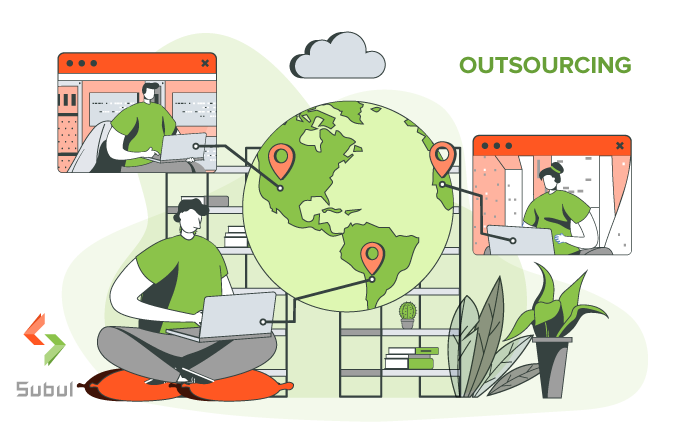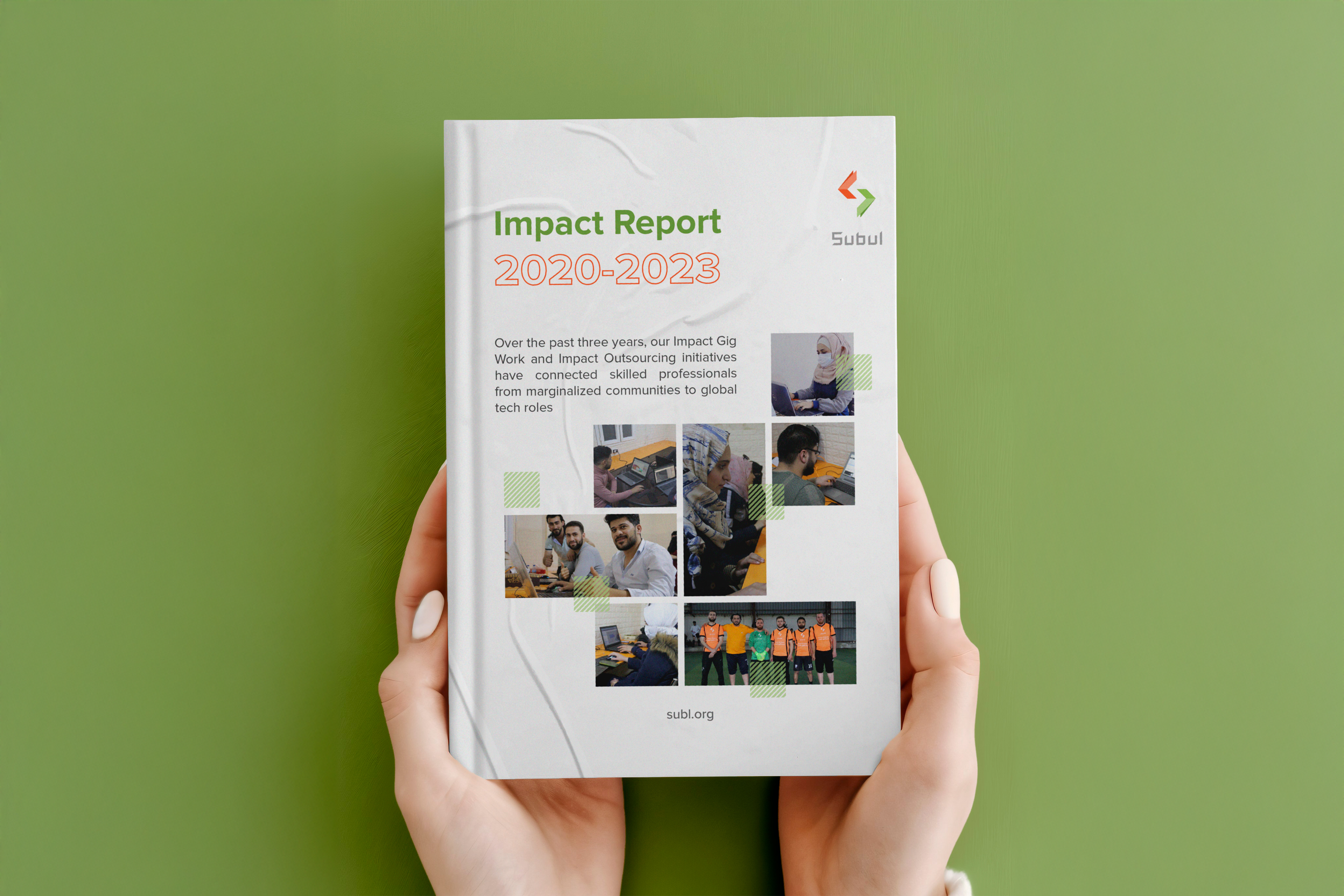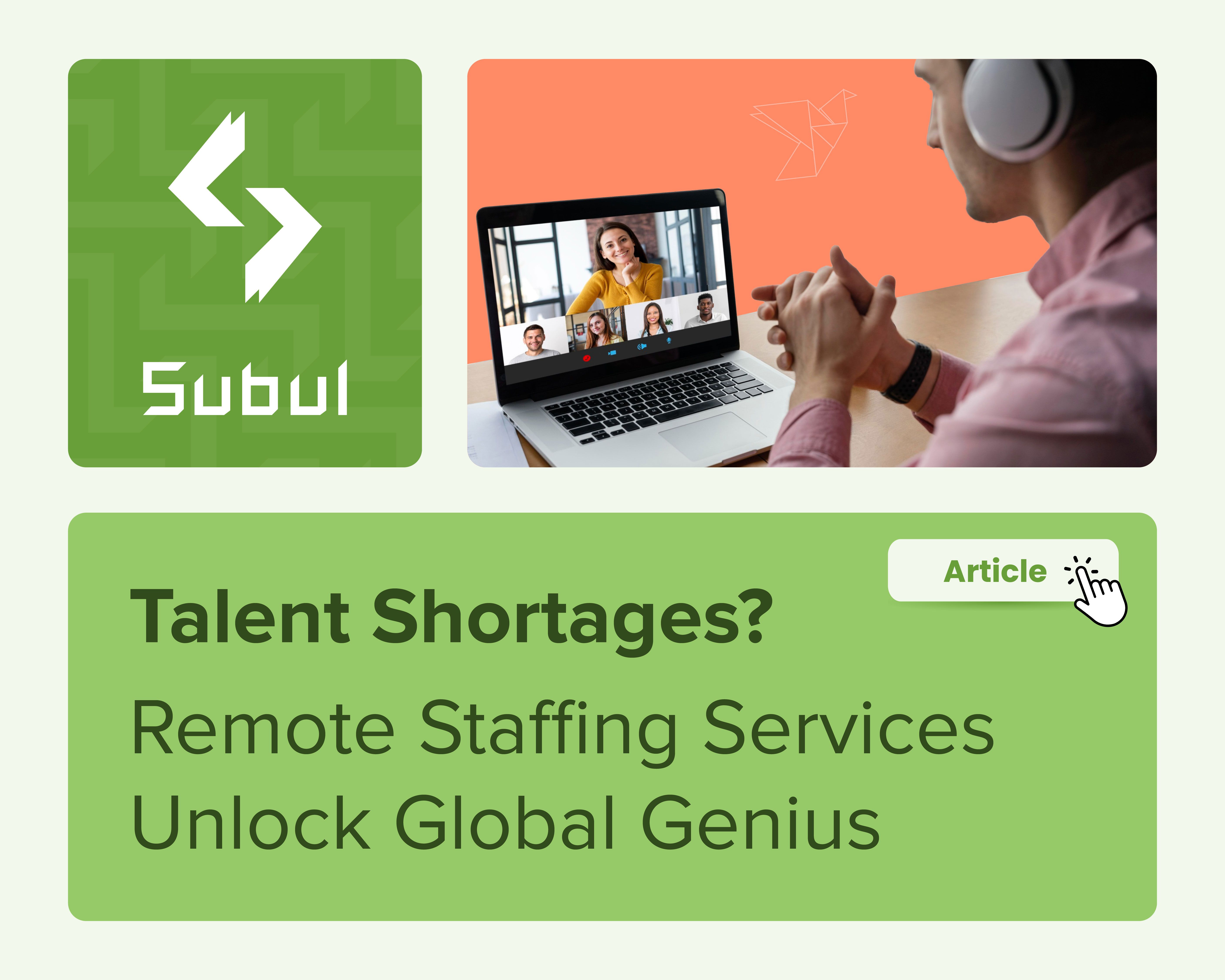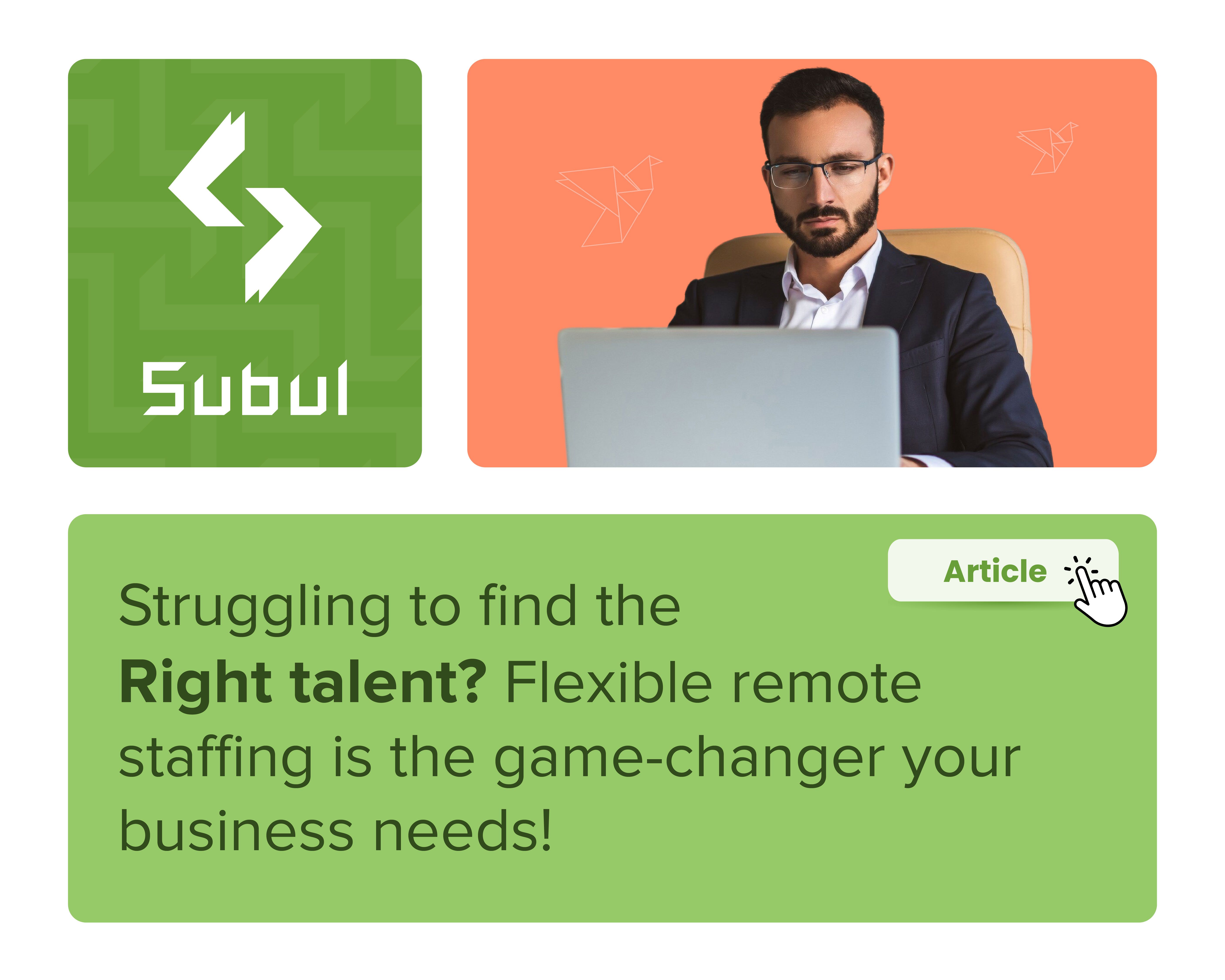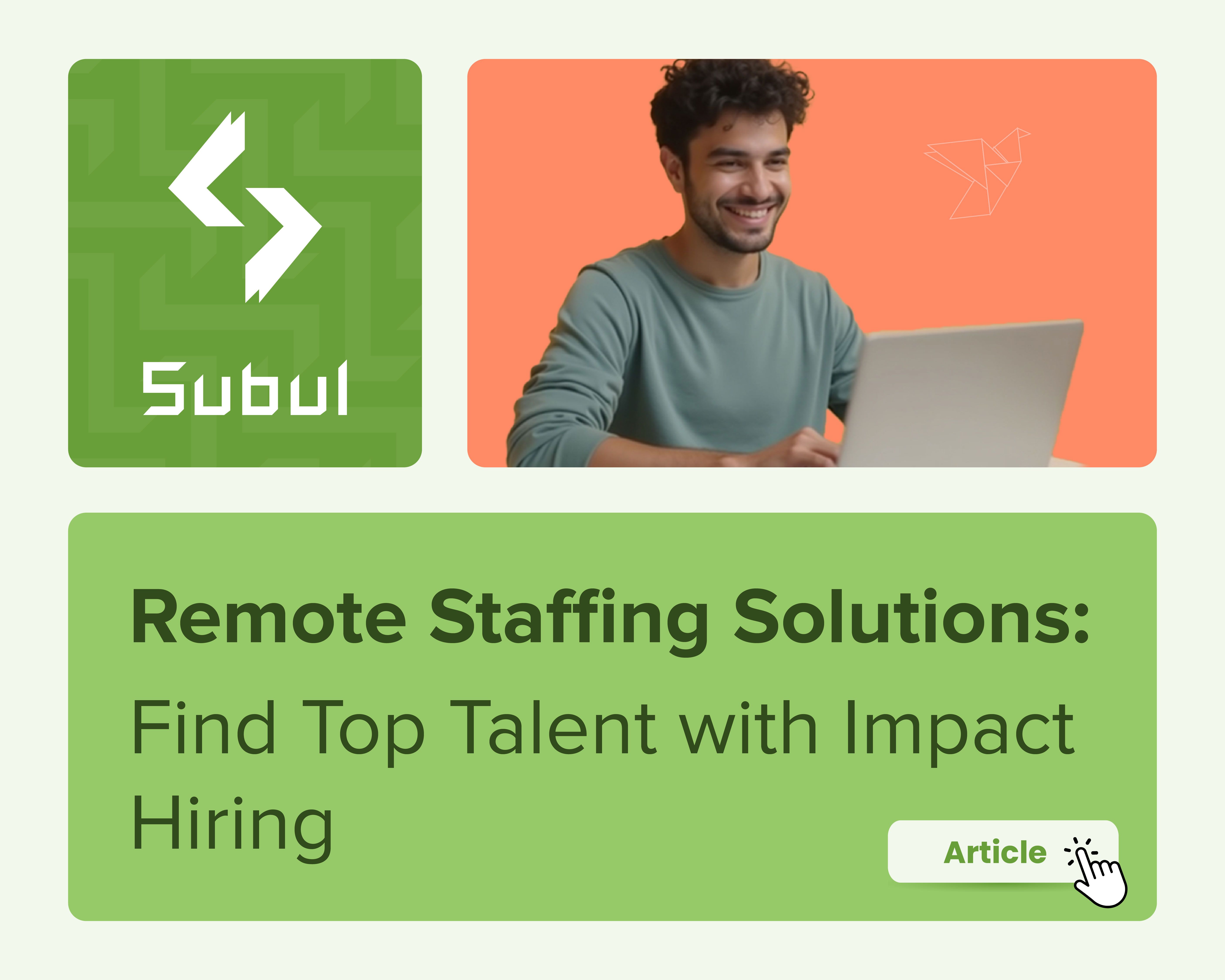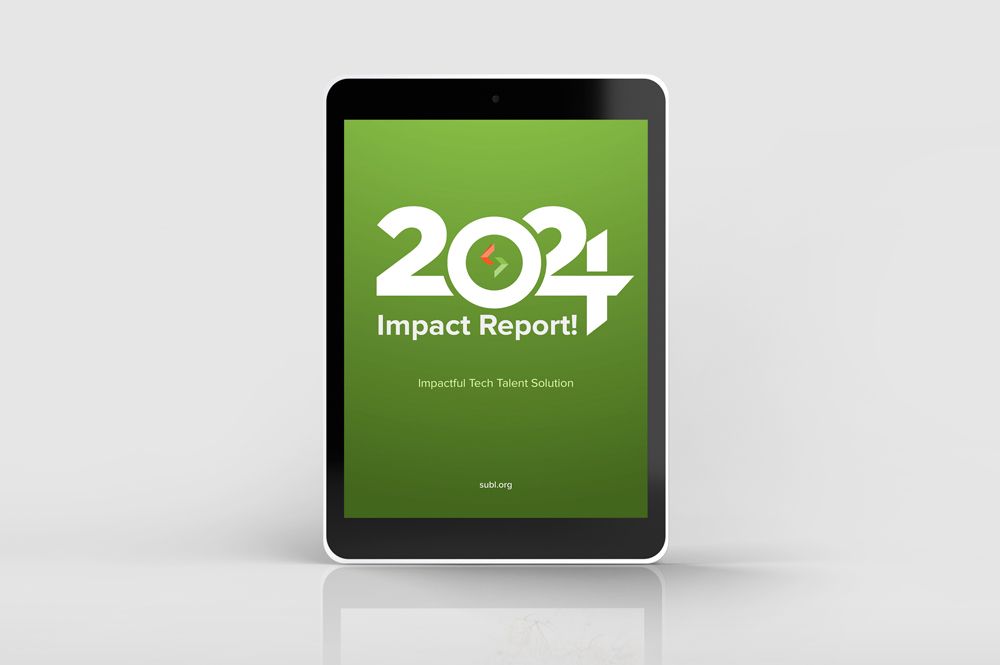Finding the right talent for your business can feel like searching for a needle in a haystack. In today’s competitive market, many companies struggle to fill critical roles – in fact, nearly 4 in 5 employers globally report difficulty finding the skilled talent they need in 2023 (What Is Talent Scarcity & How Employers Can Overcome It? | Generation). Traditional hiring methods often fall short, leaving positions open for months and teams stretched thin. This talent crunch not only hampers growth and innovation, but also frustrates businesses that know the right people are out there – they just aren’t sure how to find them.
Enter the remote staffing service: a modern approach to hiring that opens up a world of new possibilities. By tapping into remote talent, companies can break free of local labor shortages and access a global pool of professionals with the exact skills they need. The rise of remote work in recent years has proven that location is no longer a barrier – as of 2023, about 12.7% of the U.S. workforce works completely from home and 28.2% work in hybrid arrangements (10 Remote Work Statistics That You Need to Know in 2023). Top candidates today expect flexibility, and businesses offering remote opportunities gain a competitive edge in attracting them. In fact, job postings that offer remote work attract a vastly higher share of applicants compared to on-site roles (How a global talent pool can future-proof your organization | World Economic Forum). Clearly, remote staffing solutions are not just a contingency plan; they’ve become a strategic imperative for companies aiming to thrive in a digital-first, post-pandemic economy (Remote Staffing Solutions | Cut Costs, Scale Fast).
Equally important is the rise of impact hiring – aligning talent acquisition with social good. This concept, also known as impact recruitment, means recruiting in ways that make a positive impact on communities, such as hiring skilled professionals from refugee or disadvantaged backgrounds. It’s about solving business challenges and contributing to society at the same time. Imagine filling your talent gaps and changing lives with each hire. By leveraging a remote staffing service that specializes in impact hiring, companies can do exactly that. It’s a win-win approach: you get the talent you need to grow your business, and your new team members get life-changing opportunities – all while your company advances its diversity, equity, and social impact goals.
In this comprehensive guide, we’ll explore the benefits of remote staffing services for businesses struggling to find talent. We’ll see how going remote can solve today’s recruitment challenges, and how impact recruitment amplifies those benefits by infusing purpose and positive impact into your hiring strategy. From access to global talent and faster hiring, to cost savings, diversity, and brand enhancement – the advantages are game-changing. Let’s dive in.
Why Finding Talent Is So Hard Today

It’s no secret that hiring has become more challenging than ever. Rapid technological change has created huge demand for specialized skills that are in short supply. In fields like software development, data science, cybersecurity, and AI, companies often find more open roles than qualified candidates locally. This mismatch leads to lengthy recruitment cycles and unfilled positions. A recent global survey underscores the problem: nearly 80% of employers worldwide said they can’t find the talent they’re looking for in 2023 (What Is Talent Scarcity & How Employers Can Overcome It? | Generation). That’s more than double the difficulty reported back in 2015, highlighting how acute the skills gap has become.
Several factors drive this talent shortage. Technology is evolving faster than the workforce can upskill; new roles like AI prompt engineers or cloud architects emerge, but experienced professionals are few. Demographics play a role too – many developed countries face aging workforces and fewer young workers entering tech fields (What Is Talent Scarcity & How Employers Can Overcome It? | Generation). And let’s not forget changing employee expectations. The rise of remote and flexible work means top talent is no longer willing to settle for traditional 9-to-5 office jobs. Many skilled professionals have relocated or prefer to work from home, drastically shrinking the local candidate pool for employers who limit hiring by geography.
Geographic barriers, in fact, are a major reason companies struggle to hire. If you’re only looking in your city or country, you’re missing out on the majority of the world’s talent. Consider this: more than half of the world’s college graduates (54%) now come from emerging markets like India, China, Brazil, and others (How a global talent pool can future-proof your organization | World Economic Forum). There’s a vast well of educated, skilled people outside traditional talent hotspots. “Talent is everywhere – it’s just not found where companies have traditionally looked,” as one industry expert put it (How a global talent pool can future-proof your organization | World Economic Forum). By confining recruitment to a single region, companies effectively compete over the same limited group of candidates, driving up salaries and time-to-hire. It’s a bit like fishing in a pond that everyone else is fishing in, while an ocean of talent remains untouched elsewhere.
Meanwhile, worker preferences have shifted in the wake of the pandemic. Professionals got a taste of remote work and many don’t want to go back to rigid office life. Flexible schedules, better work-life balance, and the ability to live anywhere have become highly valued. Surveys find that over 90% of remote workers want to continue working remotely at least some of the time for the rest of their careers (The Impact of Remote Work on Staffing and Recruitment - Suna). And even those open to office work often seek employers with hybrid options. This means if your company insists on on-site hires only, you may alienate a large segment of qualified candidates who simply skip over your job postings. A 2022 analysis showed that while only 1 in 5 job postings offered remote work, those roles received half of all applications on LinkedIn (How a global talent pool can future-proof your organization | World Economic Forum) – a clear sign that talent is gravitating toward flexible opportunities. The bottom line? Businesses that stick to old hiring methods (local-only, on-site roles) are at a disadvantage in both finding and attracting talent.
Given these challenges, it’s no wonder many positions remain vacant for months, and recruitment costs skyrocket with each unfilled role. This is exactly where remote staffing services come in as a breath of fresh air – offering a solution to transcend geographic limits and connect with the talent your business needs.
What Is a Remote Staffing Service?

A remote staffing service is essentially a specialized recruitment partner that helps you hire employees from anywhere in the world, to work remotely as part of your team. Think of it as “talent without borders”. Instead of limiting your search to the candidates in your city or those willing to relocate, a remote staffing provider enables you to access professionals globally – whether they’re in another city, another country, or halfway around the globe.
Here’s how it works: you share your hiring needs and job requirements with the service provider, and they take on the heavy lifting of sourcing, vetting, and presenting qualified remote candidates. A good remote staffing agency has networks and databases of pre-vetted talent across various regions and time zones. They might specialize in certain fields – for example, Subul focuses on skilled tech professionals – ensuring you get candidates with the exact expertise you need. Crucially, the agency also handles logistical details of hiring internationally, such as contracts, compliance with local labor laws, and often payroll and benefits administration. In short, they make it easy for you to bring someone onboard from another part of the world, without the usual red tape.
It helps to think of a remote staffing service as an extension of your HR or recruitment team, one that broadens your reach globally. Traditional recruiting might involve posting a job and getting a trickle of local applicants; by contrast, a remote staffing partner can quickly pull in candidates from multiple countries, all screened and ready to interview. Many services maintain talent pools of remote workers – so if you need, say, a data analyst or a mobile app developer, they may already know qualified people who can start right away. This dramatically cuts down the time-to-hire. In fact, when comparing traditional hiring vs. remote staffing, the differences are striking. A typical in-house hiring process for a specialized role can take 2–4 months (or more) to source, interview, and finalize a candidate – and that’s if you can find one at all. Meanwhile, companies using remote staffing solutions have filled roles in as little as 48 hours by tapping into pre-vetted global talent networks (Remote Staffing Solutions | Cut Costs, Scale Fast). The cost savings are equally compelling: hiring locally often means higher salaries, office space costs, and relocation expenses, whereas global remote hires can save companies 30–60% in costs due to geographic wage differences and lower overhead (Remote Staffing Solutions | Cut Costs, Scale Fast).
Let’s illustrate with a quick example. Suppose you’re a startup looking for a machine learning engineer in San Francisco. Local competition is fierce and salary demands are sky-high. After three months, you still haven’t found the right fit. Now imagine partnering with a remote staffing service: within days, you get a shortlist of skilled ML engineers – one from Poland, one from Nigeria, and one from India – all with relevant experience and excellent English. You interview them over Zoom and find a great match. Your new hire onboard remotely, and you pay a fraction of a Bay Area salary, with the staffing firm handling the international employment paperwork. Result? You solved your hiring need quickly and cost-effectively, and gained a talented team member who might have been invisible to you otherwise.
In essence, a remote staffing service bridges the gap between businesses seeking talent and the vast supply of skilled professionals around the world. It provides the infrastructure and expertise to recruit without borders, so you can focus on evaluating candidates’ skills and cultural fit, rather than the logistics of where they are or how to legally employ them. Especially for businesses that don’t know how to find elusive talent, these services serve as a guide and facilitator – bringing you candidates you’d never reach on your own and handling the nitty-gritty details of global hiring. It’s recruitment made efficient, flexible, and remarkably far-reaching.
Benefits of Remote Staffing Services for Your Business

Why opt for a remote staffing service? The benefits go far beyond simply filling a role. When done right, remote hiring can transform your talent strategy and give your company a significant competitive edge. Let’s break down some of the key benefits of remote staffing services and how they directly address the challenges we discussed:
- Access to a Global Talent Pool: This is the most obvious benefit – and arguably the most powerful. Instead of fishing in a small pond, you cast a wide net into the ocean. Suddenly, those hard-to-fill roles have a much larger candidate universe. “Companies embracing remote work gain access to a wider talent pool,” as one report noted (Retain Talent & Cut Costs: The Case for Remote Work). You’re no longer limited by who lives within commuting distance or who is willing to move. Need a bilingual customer support rep? You can find one in Latin America. Short on data scientists? There might be an excellent one available remotely in Nairobi or Bangalore. By taking recruitment across international borders, businesses can adapt to evolving needs and find niche expertise worldwide (How a global talent pool can future-proof your organization | World Economic Forum) (How a global talent pool can future-proof your organization | World Economic Forum). This global reach is particularly advantageous for specialized or emerging skill sets that might be rare locally but plentiful elsewhere. The result: you fill positions faster and with the best possible people, not just the best locally available people.
- Faster Hiring and Scalability: Because remote staffing agencies maintain networks of ready-to-hire talent, the hiring timeline shrinks dramatically. No more starting each hiring process from scratch. If you suddenly get a new project and need to scale up your team quickly, a remote staffing partner can deliver multiple qualified candidates in days. This agility lets your business respond to opportunities (or challenges) without the usual delay. Moreover, remote contracts can be more flexible – you might start someone on a project basis or part-time, and scale their involvement up or down as needed. Traditional hiring often locks you into a full-time, permanent hire (with lengthy onboarding), whereas remote staffing can offer flexible arrangements that align with your workload. Many companies use remote staff augmentation to handle surges (like a holiday rush or a product launch) then scale back, which would be impractical with local hiring. In short, remote staffing gives you a dynamic workforce that can expand or contract efficiently, keeping pace with your business needs.
- Cost Savings and Efficiency: Hiring through a remote staffing service can significantly lower your talent acquisition and labor costs. For one, you can hire in regions with lower salary norms without sacrificing quality – the same budget that nets you one developer in a high-cost city could potentially hire two equally skilled developers remotely in lower-cost locales (Remote Staffing Solutions | Cut Costs, Scale Fast). Additionally, you save on overhead: no need for extra office space, equipment (remote workers often use their own), or relocation packages. Companies have found that recruiting remotely can reduce hiring costs on multiple fronts (Retain Talent & Cut Costs: The Case for Remote Work) – less money spent on expensive job ads or headhunters for hard-to-find local talent, and fewer expenses associated with bringing a new hire on-site. It’s also worth noting the opportunity cost saved: a position filled faster by a remote hire means your team is at full strength sooner, driving productivity and revenue that might have been lost with a long vacancy. All told, remote staffing allows you to do more with your hiring budget, making it a cost-effective solution especially for small and mid-sized businesses.
- Diversity, Innovation, and Fresh Perspectives: When you hire globally, you inherently build a more diverse team – in terms of culture, background, and experience. This diversity isn’t just a nice-to-have; it directly contributes to better business outcomes. Research has shown that teams with diverse perspectives produce more creative solutions and make better decisions (America's Greatest Workplaces for Diversity 2024). By bringing in remote employees from different parts of the world, you infuse your company with new ideas and approaches. A developer from Egypt might tackle a problem differently than one from the UK, and that cross-pollination can lead to breakthrough innovations. Moreover, a diverse, inclusive workforce enhances your company’s reputation and employer brand. Clients and partners increasingly value businesses that reflect global inclusion. And for employees, working in a multicultural team can be enriching and motivating. Remote staffing makes it easy to build an international team, even if you’re a small firm, which in turn can make your business more resilient and adaptable to a global customer base.
- Improved Retention and Engagement: This might come as a surprise to some – how does hiring remotely improve retention? It ties back to employee satisfaction. Remote work is a prized benefit for many professionals today; by offering it, you attract candidates who value flexibility and you keep them happier long-term. Studies found that employees with remote or hybrid options report higher job satisfaction and engagement than those fully in-office (Retain Talent & Cut Costs: The Case for Remote Work). When people can work from their preferred location (say, closer to family or in a more affordable city), they often exhibit greater loyalty. Additionally, if you engage in impact hiring (more on this below), employees take pride in being part of a company that has a mission beyond profit. That sense of purpose can boost morale and commitment. Some companies have observed that remote team members from certain talent pools – for example, those for whom the job is a truly life-changing opportunity – are exceptionally dedicated and loyal. One impact outsourcing firm noted that providing opportunities to disadvantaged talent led to lower turnover rates and higher employee engagement among those workers (The Business Benefits of Impact Sourcing: Beyond Social Good - Noon Dalton). In short, remote staffing, especially with an impact focus, can help you build a committed workforce and reduce costly attrition.
- Around-the-Clock Productivity: As a bonus, having team members in different time zones can extend your operational hours. For instance, your U.S.-based team logs off in the evening, but your remote staff in Asia or Europe might just be starting their day – meaning progress continues virtually 24/7. This isn’t a fit for every role, but for functions like customer support, IT monitoring, or any workflow that can hand off tasks, a global team can provide continuous coverage. It can speed up project cycles (work gets done while others sleep) and improve service responsiveness for international customers. A remote staffing service can help intentionally build a team across time zones to maximize this benefit. Of course, it requires good coordination (and you must manage meetings carefully), but many companies have successfully leveraged this follow-the-sun model to great effect.
These are just some of the headline benefits. In sum, remote staffing services solve the core challenges of talent acquisition by opening new pipelines of talent, accelerating hiring, and creating a more flexible, efficient, and diverse workforce. You get the people you need, when you need them, at a cost that often beats local hiring – and you set your business up to be more innovative and resilient.
For a deeper dive into remote hiring strategies and advantages, you can check out Subul’s comprehensive guide on remote staffing solutions (our in-depth look at building a borderless workforce) – it explores industry-specific use cases and addresses common concerns as well (Remote Staffing Solutions | Cut Costs, Scale Fast). But now, let’s zero in on something that takes these benefits to the next level: impact hiring.
Impact Hiring: Talent Acquisition with a Purpose
One of the most exciting trends in recruitment today is impact hiring – essentially, hiring in a way that creates positive social impact. It’s sometimes called impact sourcing or inclusive hiring. The idea is simple but powerful: channel your company’s talent needs to opportunity-rich but underserved talent pools. This often means recruiting people from disadvantaged backgrounds – such as refugees, immigrants, people in poverty, or marginalized communities – who have skills and potential but lack access to traditional hiring pipelines. By doing so, you’re not only filling a role in your company, but also changing someone’s life and contributing to broader social good.
Impact hiring is a natural complement to remote staffing. Why? Because many of these high-potential, underserved candidates are located in different regions globally. Remote work technology and global staffing partners make it feasible to integrate them into your team, no matter where your company is based. For example, an impact recruitment initiative might train refugees in software testing or data entry, then connect them (remotely) with employers who need those skills. Organizations like Refugee Talent Hub and Talent Beyond Boundaries have facilitated such matches, demonstrating that refugees can be productive, valuable employees when given the chance. In fact, research underscores that refugees are a largely untapped yet valuable talent pool – with over 50 million refugees worldwide, many possess diverse skills and professional backgrounds that businesses can greatly benefit from (Talent News Round-Up: Quiet Hiring, Refugee Talent, and Evolving Hiring KPIs | SocialTalent). Yet biases and outdated hiring practices often exclude them. Impact hiring seeks to remove those barriers.
Companies embracing impact hiring often work with specialized agencies or social enterprises that focus on sourcing and training talent from these communities. For instance, Subul (the firm behind this article) connects tech businesses with skilled professionals from refugee and disadvantaged communities, “blending business needs with social good” (Subul | Impact Recruitment and Hiring). By partnering with such an impact recruitment provider, a company can quickly hire vetted remote talent who not only meet their technical requirements but also align with a social mission. It’s hiring with heart and vision.
The benefits of impact hiring go beyond feeling good about doing the right thing – they are tangibly good for business, too. When you provide employment opportunities to someone who’s been overlooked or marginalized, you often gain an employee who is highly motivated and loyal. Think about it: a refugee software engineer finally given a break to work in their field may be far more driven to excel than an equally skilled engineer who has had abundant job options. There’s a sense of mutual commitment; you invested in them, and they are invested in your success. Companies report that impact-sourced employees can have lower turnover and higher engagement, because the job means so much to them (The Business Benefits of Impact Sourcing: Beyond Social Good - Noon Dalton).
Moreover, impact hiring enriches your company culture. It brings in team members with incredibly diverse life experiences – people who have overcome adversity and can offer fresh perspectives and resilience. This diversity can foster empathy, innovation, and a strong team spirit. Employees take pride in working alongside colleagues who represent a broader mission. It’s a reminder that your organization stands for something more, which can boost morale company-wide. And from a brand standpoint, companies known for impact hiring enhance their reputation. Clients, investors, and the public increasingly pay attention to social impact. Highlighting that your firm provides opportunities to underrepresented talent can differentiate you in the market. It positions you as a forward-thinking organization that values purpose alongside profit.
A Harvard Business Review analysis in 2024 noted that businesses should include refugees in their recruitment playbook as part of inclusive hiring efforts (Research: Why Inclusive Hiring Must Include Refugees) (Talent News Round-Up: Quiet Hiring, Refugee Talent, and Evolving Hiring KPIs | SocialTalent). The authors provided strategies for overcoming biases and creatively engaging this overlooked talent pool – essentially making the case that hiring refugees and others from marginalized groups isn’t just charity; it’s a smart way to fill skill gaps while tackling a global humanitarian issue (Talent News Round-Up: Quiet Hiring, Refugee Talent, and Evolving Hiring KPIs | SocialTalent). This reflects a broader shift: companies are realizing that doing good can go hand-in-hand with doing well.
Crucially, impact hiring doesn’t mean lowering the bar or hiring someone just to be altruistic. It’s about finding qualified talent in places others aren’t looking. Many refugees, for example, are educated professionals (engineers, doctors, coders) whose careers were interrupted by conflict or crisis. Given the chance, they can perform on par with, or even outperform, other hires. Through proper vetting and training (often provided by the intermediary organization), you ensure they have the skills needed. From that point on, you treat them like any other team member – with the same expectations and integration into your projects. The difference is, you’ve also opened a door that was previously closed for them. And that creates a profound win-win situation.
To summarize, impact hiring infuses your recruitment strategy with purpose. By aligning your talent search with social impact, you solve business problems in a way that also helps solve societal problems. You’ll fill roles that drive your growth, and create meaningful change – whether it’s reducing unemployment in marginalized communities, empowering refugees to rebuild their lives, or simply diversifying the tech industry with non-traditional talent. It’s hiring that leaves everyone better off: your company, the individual you hire, and the community at large. In the next section, we’ll see how combining remote staffing with impact hiring creates a powerful synergy that can truly transform how you build your team.
Remote Staffing + Impact Recruitment: A Winning Combination
By now, the advantages of remote staffing and the value of impact hiring are clear. But the real magic happens when you combine these two approaches. Remote staffing provides the reach and flexibility; impact recruitment provides the purpose and untapped talent. Together, they allow you to build teams that are not only highly skilled and cost-effective, but also deeply meaningful in their composition and impact.
Picture this scenario: Your business needs to ramp up a software development team for a new product. Locally, talent is scarce and expensive, so you decide to hire remotely. You partner with a remote staffing service that specializes in impact sourcing. Within weeks, you’ve onboarded a fully remote development squad consisting of, say, a front-end developer in Lebanon (who is a refugee from Syria with years of coding experience), a back-end developer in Kenya (a graduate of a tech academy for underprivileged youth), and a QA tester in rural Pakistan (where IT job opportunities are limited). Each of these hires was highly qualified and vetted for their technical skills. They just happened to come from non-traditional backgrounds. Now they’re all contributing to your project, working from their home regions but collaborating seamlessly online.
What are the results? You’ve met your urgent talent needs – the work is getting done, and done well. You likely saved money, as their salary costs are competitive and there were no relocation or big recruiting fees beyond the staffing partnership. Your existing team is energized by the newcomers; different perspectives are sparking creativity in meetings. Perhaps your new hires share their unique problem-solving approaches or insights from their experiences, enriching the project. Meanwhile, your company has literally changed the lives of those three individuals. Instead of being overlooked, they’re valued members of a global team, earning good incomes. That positive impact ripples out – supporting their families and communities. And your company can proudly speak about how it “built a world-class team without borders” (to borrow a phrase) and made a difference while doing so.
This isn’t a far-fetched, idealistic story – it’s happening right now. Many forward-looking organizations are building borderless teams and reaping the rewards. A concept known as “Impact Sourcing” has been championed by firms and industry groups: it emphasizes hiring skilled people from disadvantaged communities as part of outsourcing and staffing strategies. The Everest Group’s 2023 report on Impact Sourcing noted benefits like access to previously untapped talent pools, improved retention, and even 30% lower attrition in some cases, as well as strong employer brand enhancement ([PDF] Impact Sourcing State of the Market 2023 | Everest Group
By leveraging a remote staffing service oriented towards impact hiring (such as Subul, Digital Divide Data, Samasource, and others in this space), companies can overcome the usual hurdles of impact recruitment. These providers handle training programs, screening, and matching of candidates to ensure they meet your needs. They also often provide ongoing support to the hired candidates, from mentorship to technical resources, to ensure success on the job (The Business Benefits of Impact Sourcing: Beyond Social Good - Noon Dalton) (The Business Benefits of Impact Sourcing: Beyond Social Good - Noon Dalton). For the employer, this means you get highly motivated talent with support structures already in place. The service essentially bridges any gaps – whether it’s a skills gap closed by a pre-job bootcamp, or a logistical gap closed by providing reliable internet and workspace for the remote hire if needed.
One of the concerns companies might have is, “Will a remote hire from a disadvantaged background integrate well with my team?” The answer, given proper onboarding and a supportive environment, is yes. These individuals are professionals like any others. In many cases, they may value the job opportunity even more and put in extra effort. Your team might actually bond over the inspiring nature of the hire’s journey, fostering a strong team culture of empathy and determination. And with today’s collaboration tools – Slack, Teams, Zoom, etc. – geography truly becomes secondary. Daily standups with team members spanning continents become routine. You build camaraderie through virtual team-building, one-on-one check-ins, and maybe the occasional in-person meet-up or retreat if feasible. Before long, it feels no different than any other distributed team, except you know that through impact recruitment, your team composition is contributing to something bigger.
From a strategic perspective, combining remote staffing with impact hiring also helps future-proof your workforce. Younger generations in the workforce increasingly care about the values of their employer. Nearly all Gen Z and millennial employees today want purpose-driven work, and many will turn down jobs that don’t align with their values (The Deloitte Global 2024 Gen Z and Millennial Survey). By demonstrating a commitment to social impact in your hiring, you make your company more attractive to these purpose-oriented employees. It sends a message that your company “walks the talk” when it comes to making a positive difference. This can help you attract other top talent who want to be part of a socially conscious, inclusive organization. It’s an employer branding boost that feeds back into better recruitment in a virtuous cycle.
Additionally, remote impact hiring can align with Corporate Social Responsibility (CSR) and ESG goals. Companies spend resources on CSR initiatives – but integrating impact hiring directly into your operations means your core business is driving social impact, which is often more sustainable and scalable. It can also open up partnerships and funding opportunities (some governments and NGOs offer support or incentives for companies that hire refugees or underserved groups, for example).
To sum up, remote staffing + impact hiring = a powerful talent strategy that yields high-quality employees, social impact, and business resilience. You solve your immediate talent needs and contribute to solving societal challenges. It’s the kind of forward-thinking approach that not only addresses the present talent crunch but builds a foundation for long-term success – a workforce that is skilled, diverse, loyal, and aligned with the values of tomorrow’s world.
Overcoming Remote Hiring Challenges (Trust, Communication, and Culture)

At this point, you might be convinced of the benefits of remote and impact hiring, yet still have practical questions. How do I manage a team spread across time zones? Can remote employees really mesh with our company culture? What about communication barriers or legal compliance? These are valid questions – let’s address them briefly, because a remote staffing service can help here, too.
Trust and Performance Management: One concern many managers initially have is how to ensure a remote employee is actually working and delivering results. The truth is, managing remote staff isn’t fundamentally different from managing on-site staff – it comes down to setting clear expectations, milestones, and using the right tools. Remote staffing agencies often assist by recommending best practices for remote management. They may have platforms for activity tracking or regular reporting. But more importantly, because they provide pre-vetted, professional talent, you can trust that the individuals are career-minded and accountable. Many remote workers even report feeling more productive at home than in an office, due to fewer distractions or commuting stress. As long as you establish clear KPIs and maintain regular check-ins (e.g. weekly video meetings, Agile scrum meetings for dev teams, etc.), you’ll likely find your remote hires integrate and perform just like any other employees – sometimes better. It helps to foster a culture of outcome-based evaluation (focus on results delivered, not hours online) which often improves overall team productivity.
Communication and Time Zones: Effective communication is the backbone of a successful remote team. Thankfully, we live in an age of abundant communication tools. Email and phone have been complemented by instant messaging (Slack, Microsoft Teams), video conferencing (Zoom, Google Meet), and project management tools (Trello, Asana, Jira, etc.). With these, it’s easy to loop in a remote colleague as if they were in the next room. Still, when teams span time zones, you have to be mindful and plan. A common practice is finding a window of overlap each day for live discussions. For instance, if you have team members in California and Kenya, a morning call (California time) can catch the end of the day in Kenya. For anything outside overlap hours, asynchronous communication is key – this means documenting discussions and decisions in shared docs or chat threads so people can respond when they start their day. Good documentation habits actually benefit the whole team, remote or not. Many globally distributed teams also adopt a “follow the sun” approach for handoffs, as mentioned earlier, to keep work moving round the clock. While there is a learning curve to distributed teamwork, many companies find their rhythm and even prefer it, as it forces clarity (writing things down) and often cuts down on unnecessary meetings. Additionally, any cultural or language differences tend to smooth out over time; English is often the common business language, and you might even find it enriching to have team members teaching each other a bit of their language or customs, strengthening bonds.
Legal and HR Compliance: Hiring across borders introduces administrative complexity – different countries have different labor laws, taxes, benefit requirements, etc. Here’s the good news: a remote staffing service takes care of those headaches for you. Most operate as an Employer of Record (EOR) or similar model, where they officially employ the worker in their country and then contract their services to your company. This means they handle payroll, taxes, and legal compliance in the employee’s location, ensuring everything is above board (Subul | Impact Recruitment and Hiring). You simply pay the service, and they pay the employee, taking care of all withholdings and contributions as required. They also often assist with any work equipment logistics or stipends. Essentially, they shield you from the bureaucratic burden, making international hiring as easy as local in practical terms. Always choose a reputable staffing partner who is transparent about their compliance processes. Subul, for example, manages contracting and financial transactions for the talent they place, so you can focus on the work and not the paperwork (Subul | Impact Recruitment and Hiring).
Integrating Company Culture: It’s important that remote team members feel part of the company culture, not like outsiders. Achieving this takes intentional effort, but it’s very doable. Treat your remote staff as full team members: include them in all-hands meetings (via video), invite them to virtual social events (coffee chats, online games), and acknowledge their work publicly just as you would for on-site staff. If your budget allows, consider bringing the whole team together in person once a year for a “team retreat” – these can be invaluable for bonding. If not, even small gestures like sending company swag or a welcome package can make remote hires feel included. And if your remote hires come from very different backgrounds (e.g., impact hires who may not have corporate experience), assign a buddy or mentor to help them acclimate to the company’s way of working. Remember, inclusion is key: celebrate the diversity on your team by encouraging knowledge-sharing. Perhaps your remote employees can lead a short session teaching others about a tool or process they know well, or about working in their local market. When everyone sees each other as knowledgeable colleagues, any “us vs. them” walls break down. Many successful distributed companies say that over-communicating and being deliberate about inclusion are the secret ingredients to a strong, unified culture.
In summary, the challenges of remote staffing – trust, communication, compliance, culture – are manageable with the right partner and practices. Remote staffing services have evolved specifically to make global hiring nearly seamless. They provide support not just in finding talent, but also in integrating that talent into your workflow. So while it’s natural to have questions, rest assured that thousands of companies have paved the way and refined how remote teams operate. With a bit of guidance, your business can absolutely enjoy the benefits of remote and impact hiring without stumbling over the hurdles.
Conclusion: Build Your Team and Make an Impact
The world of work is changing, and with change comes opportunity. Remote staffing services offer a bold answer to the talent shortages and hiring frustrations that so many businesses face. By reaching across borders, you can find the skillsets you need when local channels run dry. And by embracing impact hiring through an innovative recruitment strategy, you don’t just fill jobs – you fulfill a greater purpose, building a team that embodies diversity, resilience, and social good.
For businesses looking for talent but unsure how to find it, the message is this: look beyond traditional limits. Your next star developer, analyst, or customer success rep might be in a different country or come from a non-traditional background. With a reliable remote staffing partner, geographic distance disappears and talent becomes truly global. You gain not only employees, but ambassadors of different cultures and experiences, enriching your company’s human capital. The benefits – from cost savings and faster hires to innovation and increased loyalty – directly boost your bottom line and competitive edge.
Equally, by weaving impact recruitment into your hiring strategy, you turn a business challenge into an opportunity to drive change. Every impact hire is a story: of a door opened, a career started or resumed, a community uplifted. And those stories become part of your company’s story. In an era when nearly 86% of young workers seek purpose-driven employers (The Deloitte Global 2024 Gen Z and Millennial Survey) (The Gen Z Effect and the Workforce Evolution: 2024 Statistics), this approach positions you as a leader with a conscience, a company that doesn’t just talk about values but lives them through its hiring decisions.
It’s rare to find solutions that solve multiple problems at once. Remote impact hiring is one of those rare solutions – tackling talent gaps, workforce diversity, and social impact in one sweep. It’s cost-effective and impact-effective. It’s about “redefining success, one hire at a time,” as we like to say (Subul | Impact Recruitment and Hiring). Your business grows and thrives, and the world gets a little better because of it.
Are you ready to build your team without borders and take your business to new heights? The talent is out there, waiting for the opportunity. All you need is the right partner to connect you. Don’t let location or old hiring hurdles hold your company back. Embrace the future of talent acquisition today.
Connect Us
to explore how remote staffing and impact hiring can work for your organization – we’re here to help you access elite global talent while making a positive impact. From crafting a tailored recruitment plan to handling all the details of onboarding international team members, we’ve got you covered. Reach out to us today, and let’s start building a stronger, smarter, more inclusive team for your business. Together, we can turn your talent acquisition challenges into an opportunity for growth and meaningful change.
Contact us at Subul to get started on your remote staffing journey and unlock the power of impact recruitment for your company’s success (Subul | Impact Recruitment and Hiring). Let’s create something great together – and make a difference while we’re at it.
